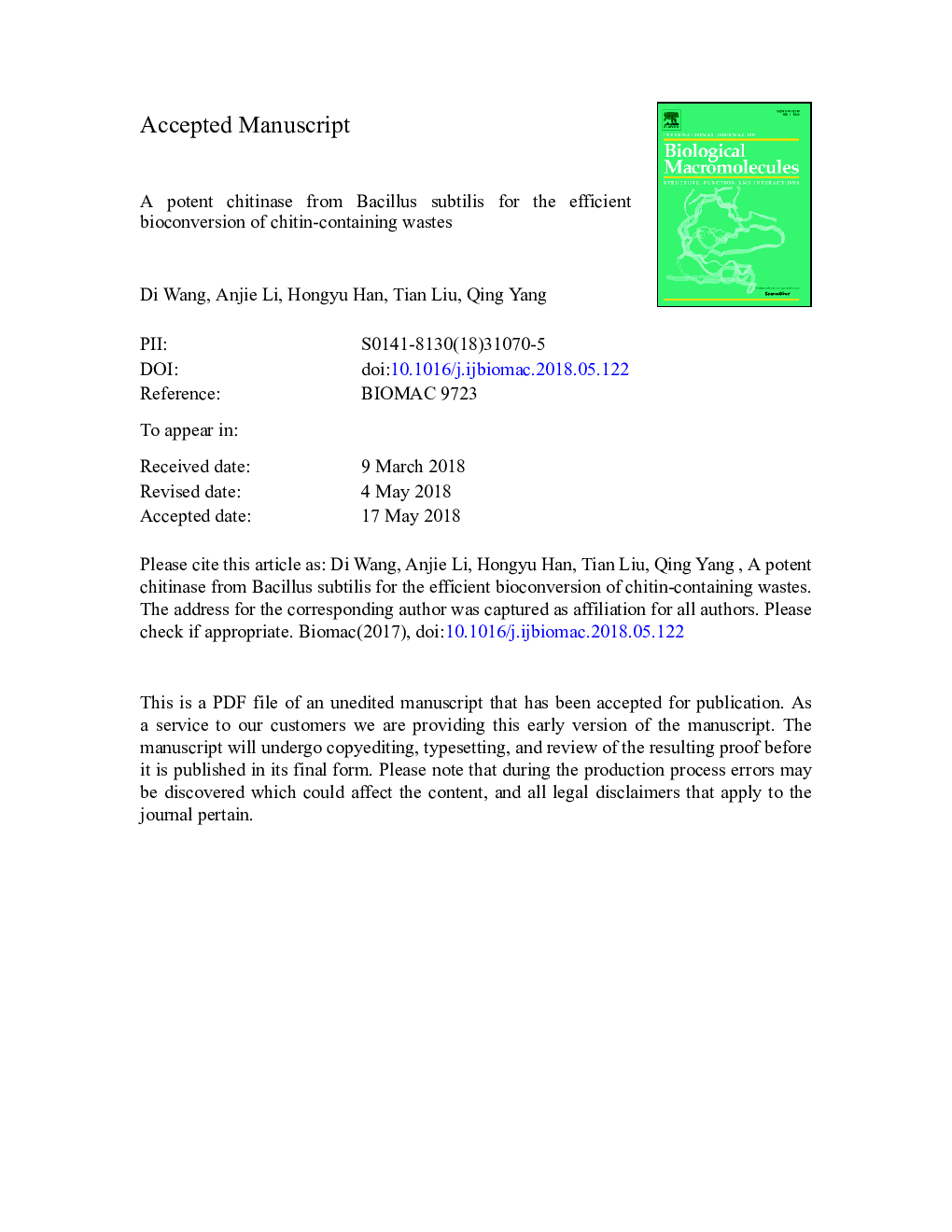| Article ID | Journal | Published Year | Pages | File Type |
|---|---|---|---|---|
| 8327285 | International Journal of Biological Macromolecules | 2018 | 27 Pages |
Abstract
Bioconversion of chitin-containing waste to N-acetyl-d-glucosamine (GlcNAc) is of economic interest. Highly efficient chitinases are thus desirable. Bacillus subtilis is a well-known microorganism for industrial protein production and biocontrol, however its chitinolytic enzyme has not been studied in detail. In this study, BsChi from B. subtilis was recombinantly expressed in Escherichia coli and characterized as a potent chitinase for degrading crystalline chitin substrates such as α-chitin, β-chitin and crab shells. BsChi was found to outperform the well-known SmChiA from Serratia marcescens and the commercial chitinase preparation from Streptomyces griseus in degrading crude crab shell which was pretreated by mechanical grinding and protease. In combination with OfHex1, a β-N-acetyl-d-hexosaminidase from the insect Ostrinia furnacalis, BsChi could produce 1.63â¯g of GlcNAc with 95% purity from 10â¯g of pretreated crab shells with a yield of 60%.
Keywords
Related Topics
Life Sciences
Biochemistry, Genetics and Molecular Biology
Biochemistry
Authors
Di Wang, Anjie Li, Hongyu Han, Tian Liu, Qing Yang,
